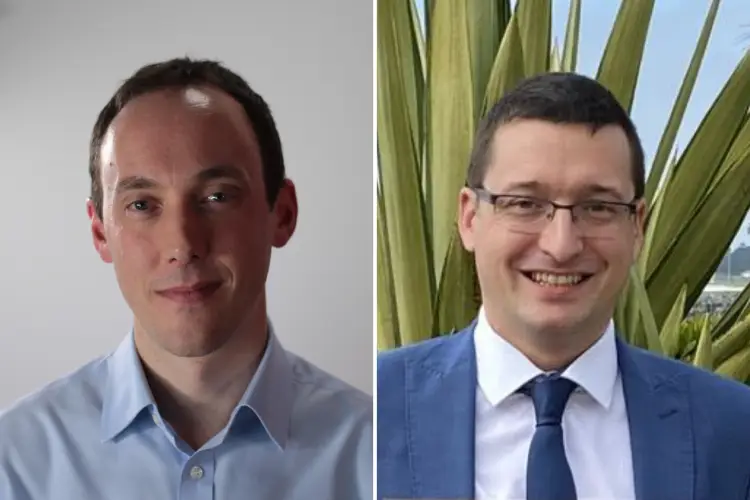
The internet, GPS and Siri are just three of myriad game-changing technologies conceived by the US Government’s Advanced Research Projects Agency (ARPA). This pioneering R&D agency, founded in 1958 and now known as Darpa (D for defence was added to the acronym in 1996 due to its focus on creating technologies for military use), has long been a model of a successful Government innovation programme.
Now the UK Government plans to set up a version of Darpa as it looks to position post-Brexit Britain as a global leader in science and technology. The ‘blue skies’ research agency will have a budget of £800m and be closely modelled on Darpa.
The idea is currently being looked at by Parliament’s Science and Technology Committee, which recently held its first evidence session. (The prime minister’s chief of staff, Dominic Cummings, is widely understood to be championing the new agency, having written extensively about the benefits of the original on his personal blog).
Tech Monitor sat in. Here’s what we heard.
What makes Darpa work?
The committee first heard from Dr Peter Highnam, Darpa’s current deputy director, who explained what he considers the secrets to the agency’s success.
“We have temporary people,” he said. “We all do limited-term tours, then we leave, and that’s a key element to the agency’s health. The second key factor is the projects, which all begin and end and have metrics. We frame a project and we work it, things don’t just continue because they’re a good idea.
“We have no in-house capabilities of our own, which means, where possible, we run a full and open competition for everything we do to find the best team for that project. People come to do tours at Darpa, not so much for their resumé, but because you get to change your technical field. We can give you the autonomy, the assets and the rigour around you to make that possible, and there’s an honour in public service.”
William Bonvillian, lecturer at MIT and a former Darpa man himself, added: “The organisation is small and entrepreneurial, and they look for project managers who want to get things done.
“It’s given a lot of freedom from bureaucracy and it’s got special kinds of hiring capability to allow it to quickly engage with top talent.
“There’s a wide acceptance of tolerance of failure and it thinks about putting together great groups of innovators; how do you find the innovators who will get to great breakthroughs and form technology visions?
“Darpa’s rules are not written down, it’s a culture that is passed on from director to director, and you have to get that culture in place early on.”
UK Darpa: Is it needed?

Defence tech experts who spoke to Tech Monitor were broadly supportive of a UK Darpa, provided the right environment is created for innovation.
Mike Sewart is CTO at defence and security contractor QinetiQ. He told us: “We already work with Darpa in the US quite a lot, and I think that the approach and the model that the Government is looking to employ is a good one,” he says.
“If we can replicate that in the UK, then great, but it will need two principal things to make it a success. It will need really relevant challenges that are going to drive operational value and a budget that supports those challenges.
He continues: “Whether it’s QinetiQ or some of our partner companies, we’re all quite challenge-led organisations and there’s some brilliant capability across the UK, including a whole ecosystem of small to medium-sized enterprises that would love to collaborate on these challenges. But it’s about making sure that you’ve got the appropriate budget to support them.
“I think if we can crack that in the UK, I think it’ll be absolutely fantastic because it will put us on the world stage as an innovator and a creator.”
Read More: NATO is hiring its first CIO and this is why
Ramsey Faragher is CEO of Focal Point Positioning, a start-up developing a next-generation positioning system. He previously worked at BAE Systems in the company’s advanced technology centre, which he describes as a ‘mini Darpa’ within the defence contractor. He believes a Darpa-type organisation can encourage knowledge sharing across verticals.
“BAE is split into different business units, so the bit that make submarines basically never talks to the bit that makes fighter jets,” he explains.
“But because I was in this advanced technology centre they would all call us up to help with their difficult problems, as if we were a mini Darpa inside the organisation. At one time I was working on both a nuclear submarine and the Mantis unmanned vehicle, travelling between the two sites working on their navigation problems. The crazy thing was that I’d spend a few days with the sub people and talk with them and learn stuff from them, then I’d go to the Mantis team and discover they were trying to solve a problem the sub people could have helped with.
“Different parts of the same organisation had 20 years of experience in particular fields they’d never told each other about. It was a huge opportunity for me to learn a lot in a short space of time.
“That’s what a UK Darpa will enable. There will be people who have the ability to reach into great swathes of what the UK is doing and cross-pollinate that knowledge, which will be greatly beneficial to both the individuals and the projects they work on.”
He says the Government must be prepared to take risks for its version of Darpa to flourish.
“There will need to be an understanding that projects might not actually succeed and all of the money might disappear,” he says.
“That’s why you normally end up with incremental improvements in systems, rather than doing something totally wacky and with a high probability of failure.
“It might be that the UK Darpa could be set up with the agreement to go after the wacky stuff, only funding projects that have a 90% chance of failing because you’re likely to encounter a lot of unsolved problems on the way. That’s when you get to the really incredible big step changes and innovations.”
UK Darpa: The challenges ahead
With £800m (~$1bn) to play with, compared to the $3.5bn in Darpa’s coffers annually, it’s likely the UK version will need to focus on a handful of projects.
The committee also discussed whether UK Darpa should ditch the ‘D’ and focus on a sector such as life science, where the country has existing strengths.
Dr Highnam said that patience will be required, but not too much patience.
“We have over 250 projects running at any one time and these are evaluated at least once a year against the agreed metrics,” he said.
“The balance [you have to strike] is to provide the programme manager with the autonomy to make decisions at speed while holding them to account to the larger metrics which include expenditure. We do that internally all the time, that is normal business.”
“For a longer-term R&D shop, how long do you give it to start delivering results? Two years from now you want to see signs of things coming through, and in three years you need to start to see impact being made on the thought processes of the end-user agencies, as well as the external research teams in companies and universities who can work with you.
“There has to be a hands-off period at the beginning to give them a bit of room to work, while keeping an eye on what’s going on.”
In terms of budget, Bonvillian added: “I think you should consider some additional funding, and if you don’t you need to focus the task into one or two technology areas where there can be real collaboration within the organisation rather than scattering it around too many focus areas.”
*What do you think? Does the UK need its own version of Darpa? Get in touch to matthew.gooding@techmonitor.ai with any comments or tips.






